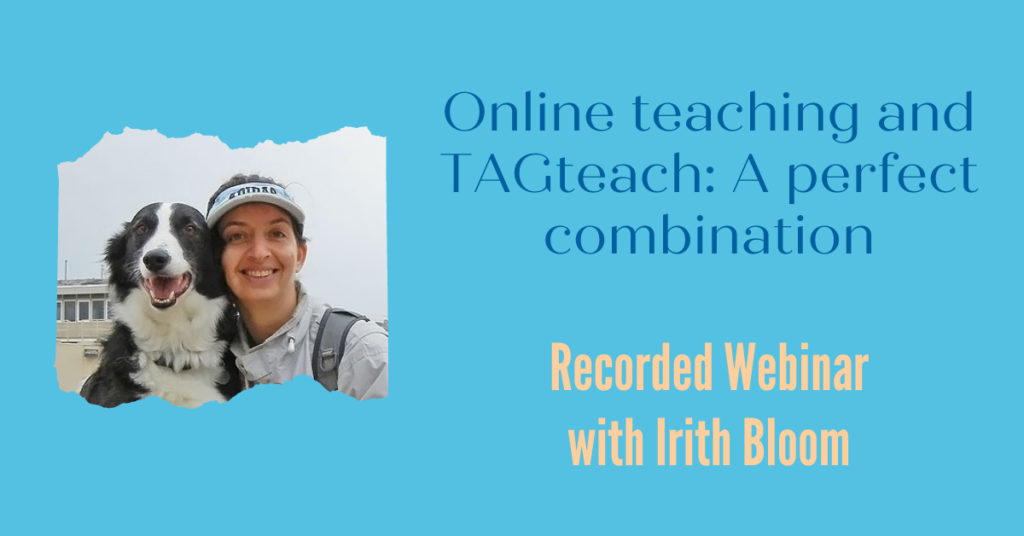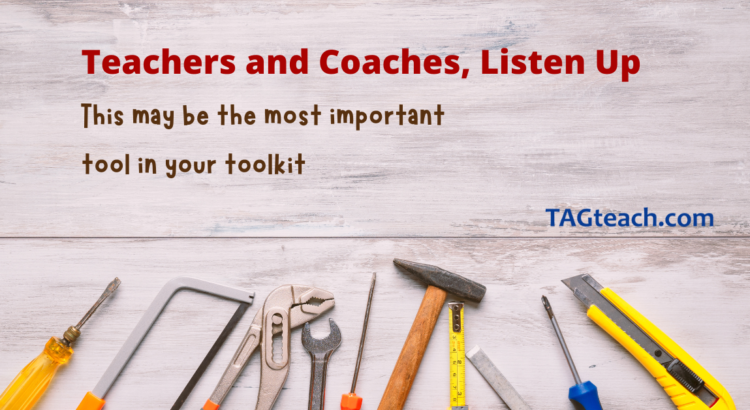By Irith Bloom CPDT-KSA, CBCC-KA, CDBC, KPA CTP, VSPDT, CBATI, Level 1 TAGteach
TAGteach is an amazing tool. Whether you are working with gymnasts, fisherman, medical students, golfers, or pet parents, TAGteach can help you do your job better. One reason TAGteach is so effective is that it helps us speak less, thanks to tools such as the focus funnel and tag points. But coming up with pithy ways to say what we mean is not the only important skill TAGteachers need to cultivate.
Changing habits
Sometimes, a TAGteacher’s job is to help people learn not just individual skills, but new habits. Habits are difficult to change, and replacing old habits with new habits takes time and repetition. In other words, while we can use TAGteach to help learners develop new skills, those skills won’t become habits without repeated practice. We need to find a way to get learners to practice new skills often enough that they become part of their routine.
Finding the right motivation
Every learner is different. Every person finds different things motivating. The only way we can discover what is motivating to the learner in front of us is to listen. By paying attention to both what learners are saying and how they are saying it, we can find out more about their needs and wants. That helps us create plans that work for the individual learner in front of us.
Giving learners agency
When we ask learners to help us come up with tag points (if you haven’t tried this yet, please do!), we are encouraging them to play a more active role in how we teach. This helps us in two ways: First, we wind up with more effective tag point phrasing. Second, the process gives learners greater agency over the learning process, and that leads to more engagement
But agency over tag points alone is not enough. We need to add agency in every possible aspect of the training process – including the overall training plan. Making assumptions about the learner’s goals and how best to achieve them doesn’t get us very far. Matching the plan to the learner’s needs – and wants – is key to success. We can only figure out what the learner needs and wants by paying close attention to what they are communicating.
Bottom line
Focus on listening, rather than talking. Ask open-ended questions. Pay attention to what the learner says (and leaves unsaid). Check your understanding of their message by recapping what you heard (and observing their reactions to your summary). Note body language and tone of voice. Keep an eye out for small clues about what matters to the learner (spoiler alert: it’s often not what you expected). Then use all that information to create a training plan that helps the learner achieve their goals. You may wind up on a different path than you anticipated, and that’s OK. The best teachers are also the best listeners. So go out there and listen!
Join Us for a Webinar with Irith

Many years ago, Irith adapted her lessons to an online environment to help geographically distant clients. The online teaching skill set came in handy when Covid lockdowns started. Irith now recommends online training to all clients (local and distant). Her expertise in on-line training is extensive and sought after by the training community. Join us for a webinar in which Irith shares the skills that you need to teach effectively online.
If the date for this is in the past, you can still register for the recording. You’ll get a free 4 weeks of full membership in TAGteach with either the live or recorded webinar.
